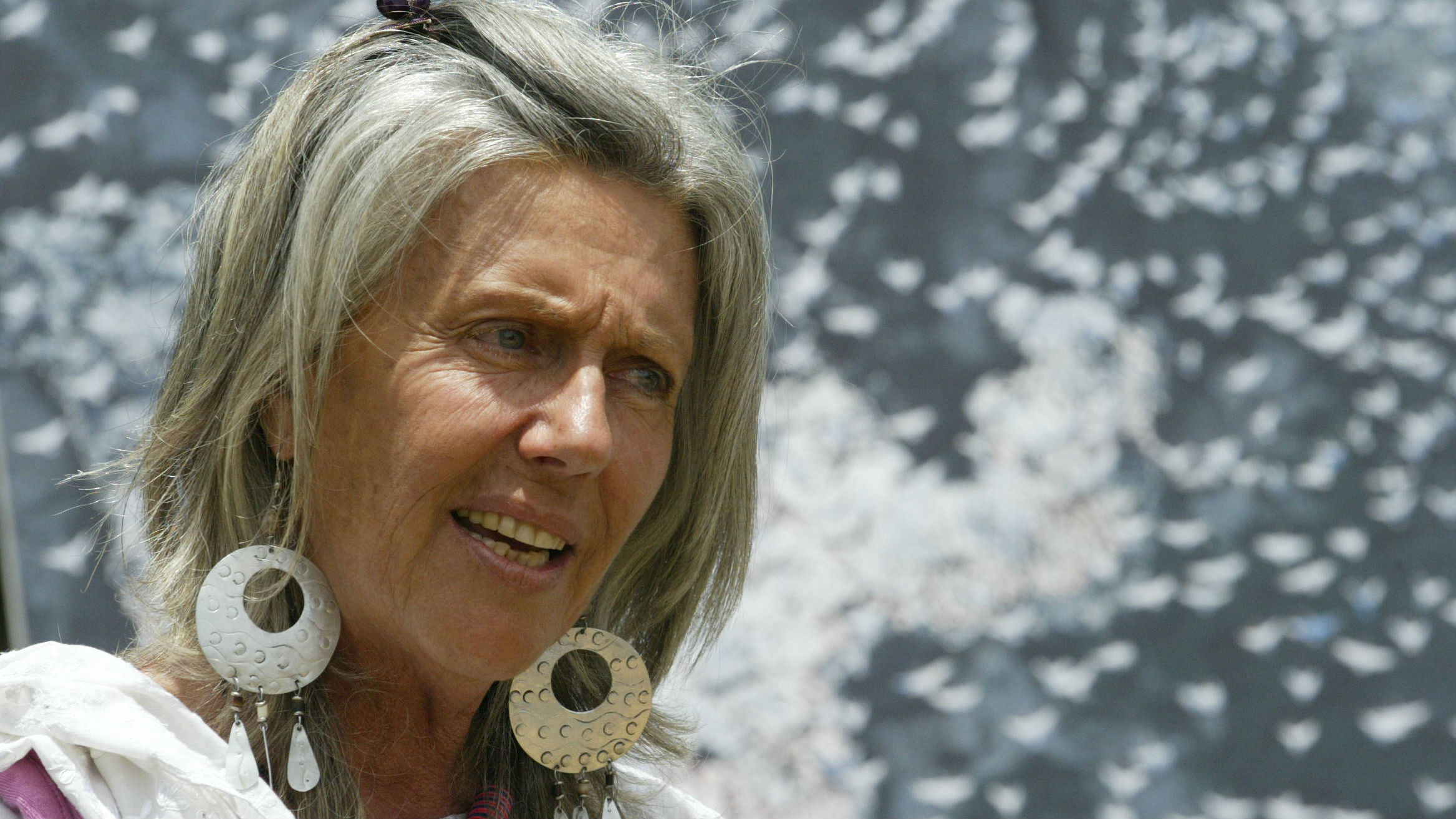Murders, shootings and ranch raids in Kenya
Author and conservationist Kuki Gallmann left critically injured in latest violence in Laikipia county

A free daily email with the biggest news stories of the day – and the best features from TheWeek.com
You are now subscribed
Your newsletter sign-up was successful
Italian conservationist Kuki Gallmann was seriously wounded in a shooting on her ranch in Kenya, the latest in a series of attacks on landowners and farmers in the east African nation.
Who is behind the attacks – and what has motivated them?
Who is Kuki Gallmann?
The Week
Escape your echo chamber. Get the facts behind the news, plus analysis from multiple perspectives.

Sign up for The Week's Free Newsletters
From our morning news briefing to a weekly Good News Newsletter, get the best of The Week delivered directly to your inbox.
From our morning news briefing to a weekly Good News Newsletter, get the best of The Week delivered directly to your inbox.
Now 73, Gallman is best known for her 1991 memoir I Dreamed of Africa, in which she tells how she came to Kenya as a wealthy Italian socialite and found new purpose through conservation when her son and husband died within a few years in separate accidents. Rather than return to Italy, Gallmann set up a memorial foundation in their names and turned their 400 sq mi cattle ranch into an education centre promoting the peaceful coexistence of humans and wildlife. Her memoir was turned into a Hollywood film starring Kim Basinger in 2000.
What happened to her?
On Sunday she was shot as she inspected a ransacked lodge on her ranch in the Laikipia region. A bullet passed through the door of her car, hit her hip and caused serious internal injuries to her stomach. She was airlifted to hospital in Nairobi and underwent surgery and is said to be in a critical condition.
Gallmann had been "increasingly distressed" in recent weeks, says Jeffrey Gettleman, East Africa bureau chief of the New York Times. He received a "flurry" of text messages from her warning that heavily armed pastoralists (people who live by herding livestock across country) had invaded her ranch and were "edging closer and closer to her house". In March, a safari lodge she owned was burnt to the ground with no-one staying inside, says the BBC.
A free daily email with the biggest news stories of the day – and the best features from TheWeek.com
Who shot her?
The bullet was fired by "raiders" on Gallmann's ranch, says the NY Times. Gallmann identified them as Pokot, an ethnic group from northern Kenya. She told Gettleman in a text message a few days before the shooting: "Pokot militia openly carrying firearms. Not just herders. Group of armed men without livestock. 13 firearm spotted."
What else have the pastoralists done?
Armed raiders have led "mounting violence" in Kenya in recent months, says The Guardian. Private ranches have been invaded and, on 5 March, former British army officer Tristan Voorspuy was killed while inspecting safari holiday lodges her runs the same area as Gallmann. At least 13 other guards and herders have also been killed, says The Times.
Why are the pastoralists doing this?
In a word, drought. Ranch invasions are taking place as the pastoralists drive more than 200,000 cattle through northern Kenya looking for pasture. Their movement has been caused by a devastating drought in East Africa.
Is this about black versus white?
In part, possibly – but the bulk of victims are not white. While Gallmann and Voorspuy have garnered the most attention internationally, there have been "hundreds" of other people displaced with violence from their homes, says The Guardian. However, the MP for Laikipia North, Mathew Lempurkel, was charged with incitement last month, one of several local politicians accused of using "racially charged language" to urge farm invasions, the BBC says.
-
 Political cartoons for February 21
Political cartoons for February 21Cartoons Saturday’s political cartoons include consequences, secrets, and more
-
 Crisis in Cuba: a ‘golden opportunity’ for Washington?
Crisis in Cuba: a ‘golden opportunity’ for Washington?Talking Point The Trump administration is applying the pressure, and with Latin America swinging to the right, Havana is becoming more ‘politically isolated’
-
 5 thoroughly redacted cartoons about Pam Bondi protecting predators
5 thoroughly redacted cartoons about Pam Bondi protecting predatorsCartoons Artists take on the real victim, types of protection, and more
-
 Epstein files topple law CEO, roil UK government
Epstein files topple law CEO, roil UK governmentSpeed Read Peter Mandelson, Britain’s former ambassador to the US, is caught up in the scandal
-
 Iran and US prepare to meet after skirmishes
Iran and US prepare to meet after skirmishesSpeed Read The incident comes amid heightened tensions in the Middle East
-
 Israel retrieves final hostage’s body from Gaza
Israel retrieves final hostage’s body from GazaSpeed Read The 24-year-old police officer was killed during the initial Hamas attack
-
 China’s Xi targets top general in growing purge
China’s Xi targets top general in growing purgeSpeed Read Zhang Youxia is being investigated over ‘grave violations’ of the law
-
 Panama and Canada are negotiating over a crucial copper mine
Panama and Canada are negotiating over a crucial copper mineIn the Spotlight Panama is set to make a final decision on the mine this summer
-
 Why Greenland’s natural resources are nearly impossible to mine
Why Greenland’s natural resources are nearly impossible to mineThe Explainer The country’s natural landscape makes the task extremely difficult
-
 Iran cuts internet as protests escalate
Iran cuts internet as protests escalateSpeed Reada Government buildings across the country have been set on fire
-
 US nabs ‘shadow’ tanker claimed by Russia
US nabs ‘shadow’ tanker claimed by RussiaSpeed Read The ship was one of two vessels seized by the US military